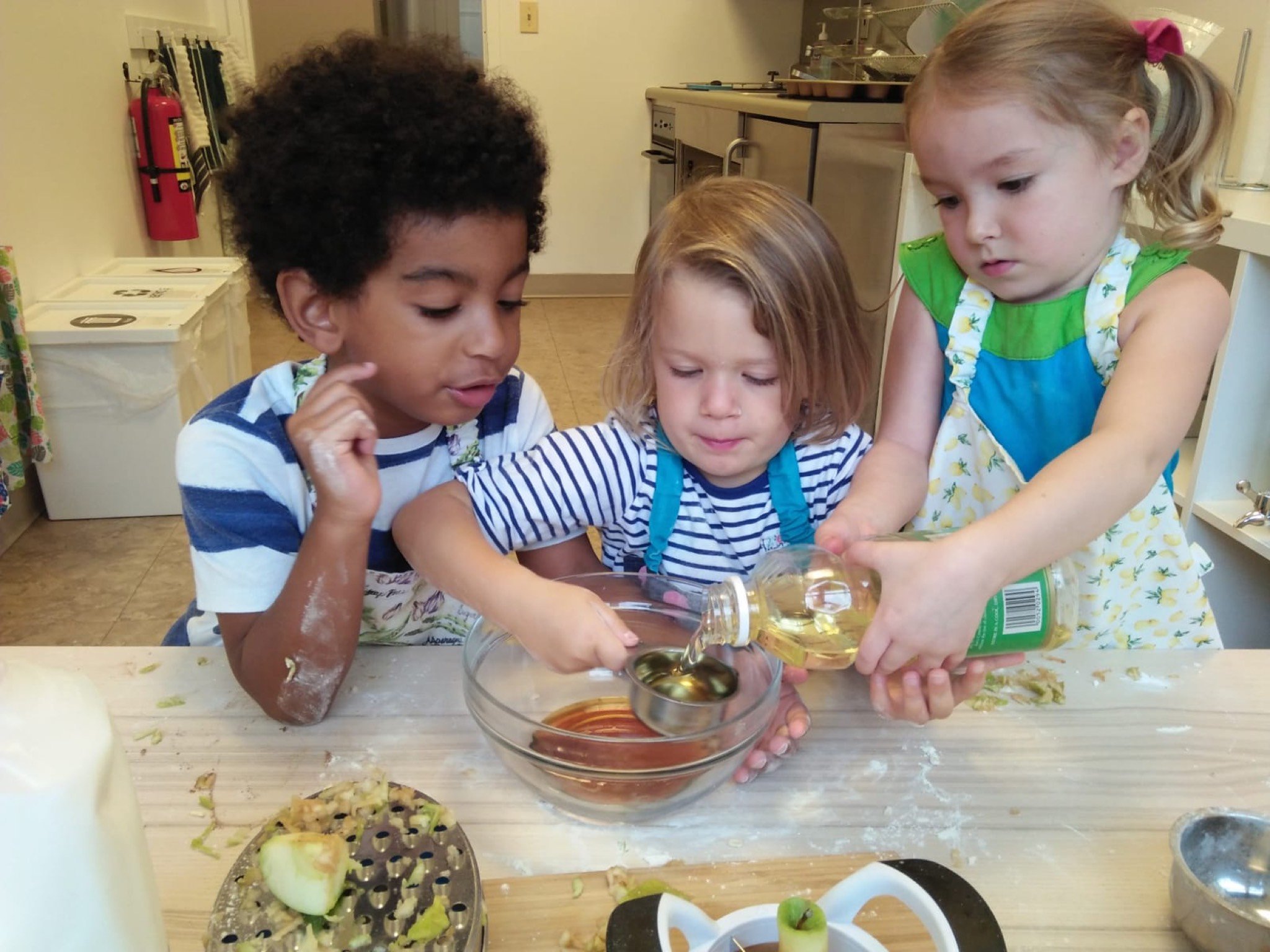 Montessori learners have been busy in the kitchen! They’ve been slicing, measuring, grating, spreading, and, of course, eating (their favorite part). Participating in kitchen-centered activities is a fun and easy way to refine gross and fine motor skills, build concentration, and practice sequencing. For example, when we bake, we always separate our dry and wet ingredients. Don’t forget to taste and feel as you go—Is it sticky or soft? Does it taste savory or sweet?
Montessori learners have been busy in the kitchen! They’ve been slicing, measuring, grating, spreading, and, of course, eating (their favorite part). Participating in kitchen-centered activities is a fun and easy way to refine gross and fine motor skills, build concentration, and practice sequencing. For example, when we bake, we always separate our dry and wet ingredients. Don’t forget to taste and feel as you go—Is it sticky or soft? Does it taste savory or sweet?
Getting children involved in the kitchen is best with the right tools. To ensure safe and easy slicing, we use a crinkle cutter. Click here to see and purchase one for your home. Pro-tip: It is easier for children to cut food that sits flat on a cutting board. For example, parents can help by cutting carrots and potatoes in half first so they don't roll or move.
Soft fruits and vegetables are best for learning to cut. For example, bananas are easy to cut with a small butter knife. We started with bananas on the first day of school and the children have enjoyed it tremendously. Involving children in day-to-day practical chores at home (e.g. cooking, cleaning, doing laundry, etc.) allows them to contribute to your family in a real and meaningful way, while instilling a sense of accomplishment.
Apple slicing is another challenge Montessori learners enjoy. Cut the whole apple into four horizontal pieces, not only to prevent it from moving but also to make it easier to cut through as they build up their strength with the apple cutter (I like this one with the rubberized handles for a non-slip grip).
One frequently asked question regarding Montessori food preparation activities is: What’s with all the aprons? Aprons serve several wonderful purposes that are not always obvious: Of course, they protect the child’s clothing, but more that that, aprons are a part of our prepared environment and are built naturally into our work cycle. By putting on an apron, it signals you are starting an activity. When you take it off (and put it away), it is the end—the apron helps define the activity.
While the apron is on we are working—and not until everything is done (completed and put away) can the apron come off. One thing to look for in an apron is that it fits the child and that the child, even a toddler, can put it on and take it off him/herself. This helps foster independence and lessens reliance on others, promoting a sense of self. Plus aprons are so darn cute! Check out these handmade aprons or pick one up next time you are at Ikea.
Want to get your child involved in the responsibilities of the kitchen more but not sure how? Empower her to empty her lunch box when she gets home and load used containers in the dishwasher while you have a conversation about what she would like to prepare for tomorrow’s lunch. Help him play an active role in getting things ready for school the next day.